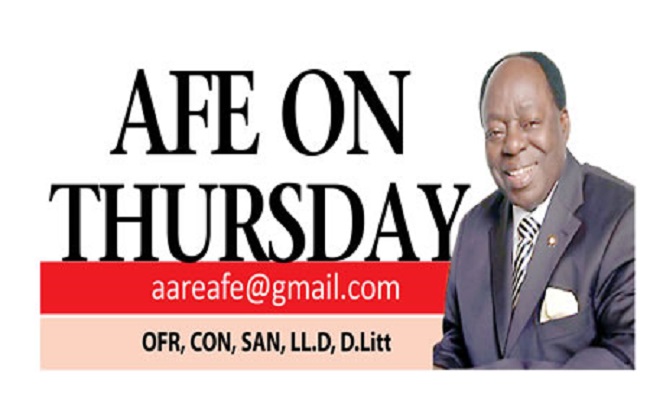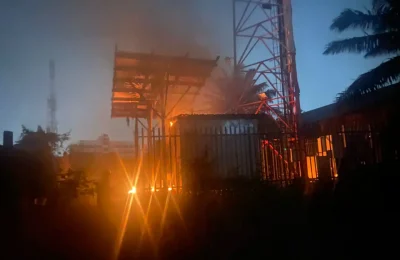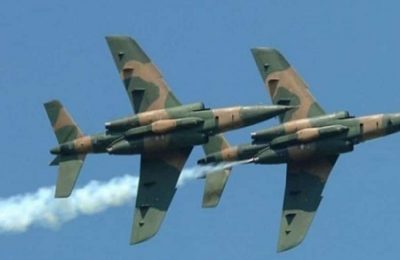
Background
MY last publication on this topic identified three questions (issues) that need to be answered on the NNPC limited vs Dangote Refinery rift. These are whether the NNPC ltd has the power to: 1. Supply crude oil to local refineries? 2. Determine the price of petroleum products? 3. Act as the sole purchaser and distributor of petroleum products in Nigeria? I further considered the provisions of section 64 of the Petroleum Industry Act, 2021 (PIA) on the powers of the NNPC limited, sections 31 and 32 of the PIA on the powers of the Nigerian Midstream and Downstream Petroleum Regulatory Authority, and section 111(1) on private sector participation in Petroleum operations in Nigeria.

Application of the PIA in resolving the issues
- Whether the NNPC Limited has the power to supply crude oil to local refineries?
Section 64(c) provides that the NNPC limited has the power to lift and sell royalty oil, profit oil and tax oil on behalf of Nigeria. Hence the NNPC has been involved in exporting crude oil, oil swaps, oil for debt deals and was even compelled to sell crude oil to Dangote Refinery. However, by section 31(g) of the PIA, NNPC ltd. is not the only body that can supply crude oil to local refineries. The Nigerian Midstream and Downstream Petroleum Regulatory Authority also has the mandate to ensure the supply of crude oil to local refineries. The implication of this is that question 1, which is on the power of the NNPC to supply crude oil to local refineries, is not exclusively restricted to NNPC limited. The Nigerian Midstream and Downstream Petroleum Regulatory Authority also has the power. The powers of the NNPC limited is restricted to dealings royalty oil, profit oil and tax oil only.
- Whether the NNPC Limited has the power to Determine the price of petroleum products?
Sections 31(e) and (l) and 32(e) reveals that the Nigerian Midstream and Downstream Petroleum Regulatory Authority is the body responsible for the fixing of the prices of petroleum products. In addition, Section 205 (1) of the PIA provides that “Subject to the provisions of this section, wholesale and retail prices of petroleum products shall be based on unrestricted free market pricing conditions.” (Emphasis mine).
Consequently,the wholesalers and retailers are free to negotiate the price for the sale of petroleum products unsupervised. However, where there is a monopoly in the wholesalers or distributors have become a monopoly, the Nigerian Midstream and Downstream Petroleum Regulatory Authority will interfere in the pricing to regulate the tariffs – section 205(2) of the PIA.
Finally, section 208 of the PIA mandates licensees (both wholesalers and distributors) to publish prices of the petroleum products so that customers are able to identify and calculate the extent of charges for which they will become liable.
The combined effect of these provisions is that the NNPC limited has no role in the pricing or the announcement of the prices of petroleum products in Nigeria. They are at best like all other privately owned companies when it comes to the pricing of petroleum products in Nigeria and not the regulator. The regulator is the Nigerian Midstream and Downstream Petroleum Regulatory Authority.
- Whether the NNPC limited has the power to act as the sole purchaser and distributor of petroleum products in Nigeria?
Section 32(h) of the PIA provides that the Nigerian Midstream and Downstream Petroleum Regulatory Authority is the body responsible for the distribution of petroleum products in Nigeria. It is only the Nigerian Midstream and Downstream Petroleum Regulatory Authority that has the authority to issue licenses to persons qualified to be wholesale suppliers of petroleum liquids – section 197(1) of the PIA.
This licence is to be issued to companies producing crude oil or condensates or both – section 197(2).
This licence empowers the wholesale supplier to: 1. supply petroleum liquids to consumers in Nigeria, export same– section 197(3) of the PIA, 2. supply petroleum liquids on request to a customer who is willing and able to pay for connection to the transportation network – section 200(1)(b) of the PIA. Section 201 also empowers the Nigerian Midstream and Downstream Petroleum Regulatory Authority to issue a distribution licence to supply petroleum products to retailers in Nigeria. Hence the power to distribute petroleum products in Nigeria is not domiciled with the NNPC limited. Rather, it is domiciled with the Nigerian Midstream and Downstream Petroleum Regulatory Authority. In addition, where any person, company or agency is inhibiting competition in the midstream and downstream sector of the oil and gas in Nigeria, the Nigerian Midstream and Downstream Petroleum Regulatory Authority has the mandate to ensure that the monopoly is prevented – section 211(1) of the PIA.
The ultra vires dealings of the NNPC Limited
It is obvious that the intention of the PIA is to ensure that there is fair market competition in the oil and gas sector of Nigeria. However, the Nigerian Midstream and Downstream Petroleum Regulatory Authority has been invisible in the NNPC Ltd – Dangote Refinery rift. The Authority’s seeming non-existence has bequeathed on NNPC Ltd a monopoly over the oil sector of Nigeria. NNPC Ltd. maintained that Dangote Refinery was free to sell directly to any marketer on a willing buyer-seller basis. It however stated that it will not purchase from Dangote Refinery if the price was higher than the pump price. It should be noted that the landing cost of PMS as far back as July2024 was N1,117. NNPC is secretly paying subsidy which ought to have been removed since June 2023 for the pump price of PMS to be lower. It refused to sell crude to Dangote, forcing him to import crude oil and knowing that if the raw material was expensive, the finish good will be even more expensive. Also, the independent marketers are boycotting Dangote fuel because it is more economical for them to import fuel that will be subsidised by the Government through NNPC.
The NNPC Limited has therefore created an unfavourable condition for operation for Dangote Refineries Limited. This is against the intention of the PIA as discussed above and ultra vires the powers of the NNPC Ltd.
At the moment, the Independent Marketers have commenced negotiation with Dangote to lift its PMS on the authorisation of the NNPC Ltd. In essence, the marketers are acting only under the arrangement of NNPC that it should be the sole distributor.
It is therefore evident that the dealings of the NNPC Limited with regards to the petroleum products from Dangote Refinery is ultra vires in relation to the above-mentioned provisions of the PIA.
The PIA in sections 197 and 211 empowers the Independent Marketers to purchase directly from Dangote Refinery on their own terms and will. The NNPC Ltd has no power to impose itself as the oil cabal in Nigeria and it should not be allowed to do so.
Also, Dangote Refinery should publish the selling price of its petroleum product as it is empowered to do under the PIA. This will further weaken the hold of the NNPC Limited in dominating the price of petroleum products from Dangote Refinery Limited. (See the rest on www.tribuneonlineng.com)
AARE AFE BABALOLA, OFR, CON, SAN, LL.D (Lond.)
Conclusion
Affording NNPC the latitude to act beyond its powers while at the same time usurping the functions and powers of the Nigerian Midstream and Downstream Petroleum Regulatory Authority is an unpardonable anomaly.
The NNPC ltd has also created a monopoly that forces Dangote Refinery into unfavourable market conditions. This is against the intentions of the PIA which imposes and obligation on the Nigerian Midstream and Downstream Petroleum Regulatory Authority to promote competition and private sector participation in midstream and downstream petroleum operations.
Unfortunately, these anomalies have gone unremedied, leading to unfair market practices in a free-market economy like Nigeria.
It is my view that the Federal Government and the Nigerian Midstream and Downstream Petroleum Regulatory Authority should call the NNPC ltd to order for the sake of the Nigerian economy and collective good. They should also put mechanisms in place to curb the powers of the NNPC ltd to sabotage the purchase of PMS from Dangote Refinery.
It is also my view that the Federal Government of Nigeria should terminate the payment of subsidies on imported petroleum product since it is not paying any subsidy on petroleum products from Dangote Refinery. This will give both products a level playing ground in the market.







